A woman whose pimple turned out to be cancer warns others to get regular check-ups
A woman who’s mother was battling melanoma discovered she too had the disease after discovering a pimple in the exact same spot as her mum’s. Warning: Graphic images
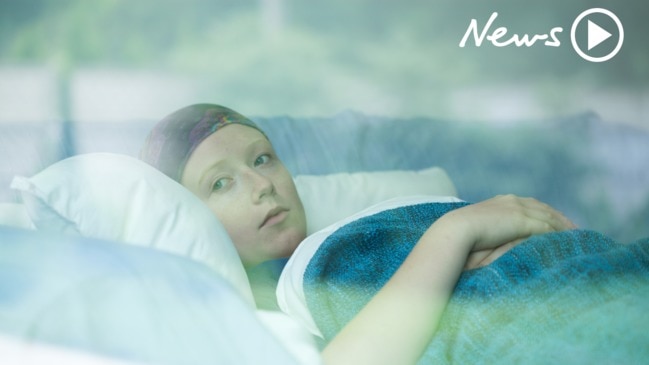
Warning: Graphic Images
Michelle Raines was already going through one of the toughest, most challenging and emotional times of her life when she was diagnosed with melanoma.
The Melbourne woman’s mother was battling the disease herself and it had spread to most of her organs.
“At that stage mum was having immunotherapy and radiation,” Ms Raines said.
Ms Raines was focused solely on supporting her mother through the horrible ordeal. But it was during this time she had noticed a scratch on her shin.
She shrugged it off and decided to have her local dermatologist check it out at her next appointment.
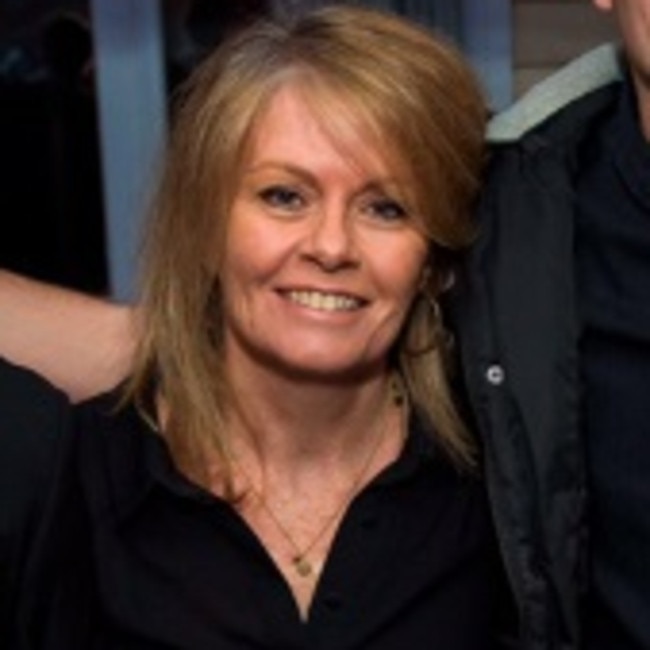
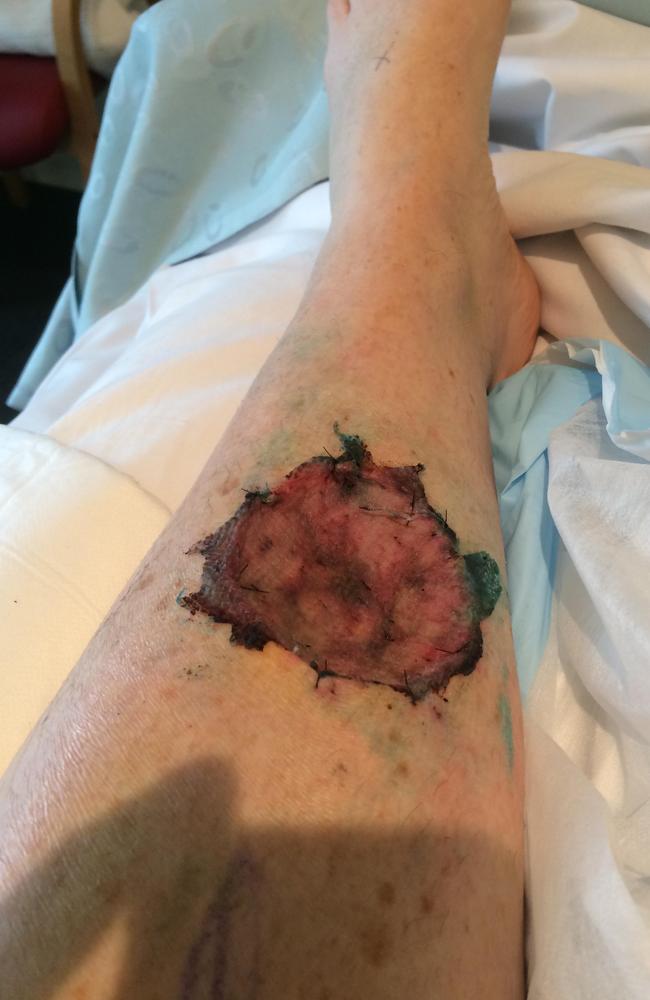
She never expected it would quickly turn into a blind pimple and ultimately, cancer.
“It came up on my leg like a scratch at first but then it grew rapidly, like a red pimple the size of a smarty,” Ms Raines told news.com.au
“I was in the middle of treatment with mum but had a dermo appointment coming up as I’ve had them regularly for years, so I thought I’d just wait for that appointment before I got it checked out.
“My daughter even said to me ‘Are you going to do something about that?’”
When Ms Raines went for her routine check-up, her dermatologist cut out the growing pimple and took a biopsy that revealed it was in fact Stage I melanoma — it also happened to be in the exact same spot as her mother’s (on her left shin) before she too was diagnosed with the skin cancer.
“I was in shock but at that time my main focus was mum,” she said. “It helped me not to focus too much on myself.
“I thought it was a bit of a freak thing that it was in the same spot as mum’s — I used to say to mum ‘Were in this together’ and so when that happened I was like ‘okay, I didn’t mean this extreme’,” the mother-of-three joked.
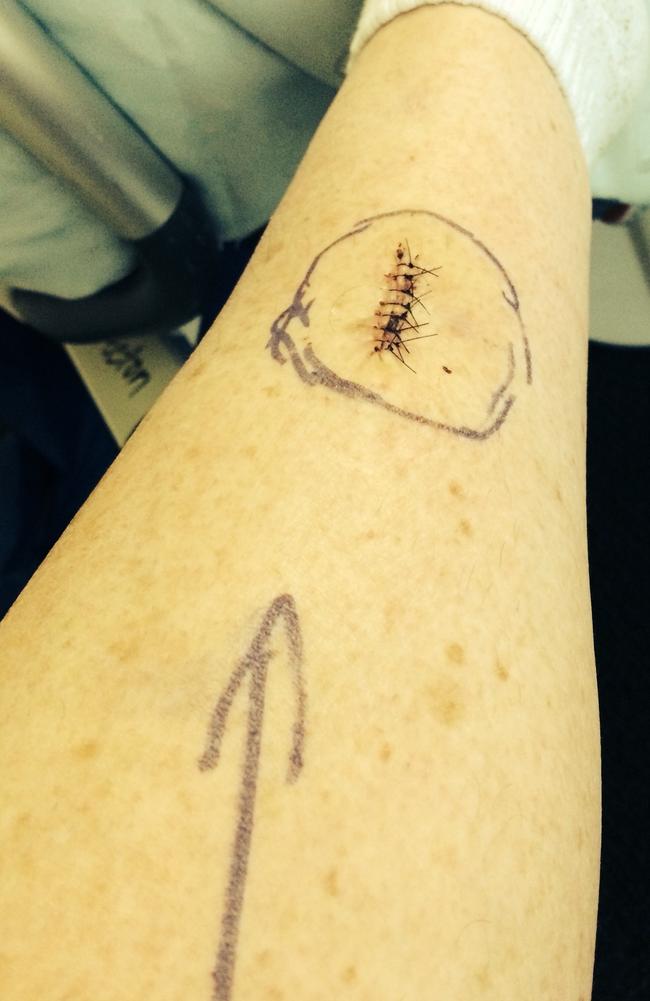
Ms Raines, who was 51 at the time, underwent successful surgery to remove the lump, but sadly, her mother died a few months later in December 2014.
Ms Raines’ cancer would recur in December of 2015 and in 2016, both requiring further surgery.
“At this point I was shattered that it had come back especially when they tell you they have got it all out,” Ms Raines said.
In August of 2017, Ms Raines’ routine PET scan revealed the melanoma had spread to her
liver and lungs and she was diagnosed with Stage IV.
It was during this time she also had to face the tough decision of telling her three children who were teenagers at the time.
“I probably waited a week before I told them. I had to see the doctors to know exactly what was going on before I told them.
“They asked questions and handled it well, but they didn’t say a lot of how they were feeling. It was hard for everyone and to this day I still try and protect them.”
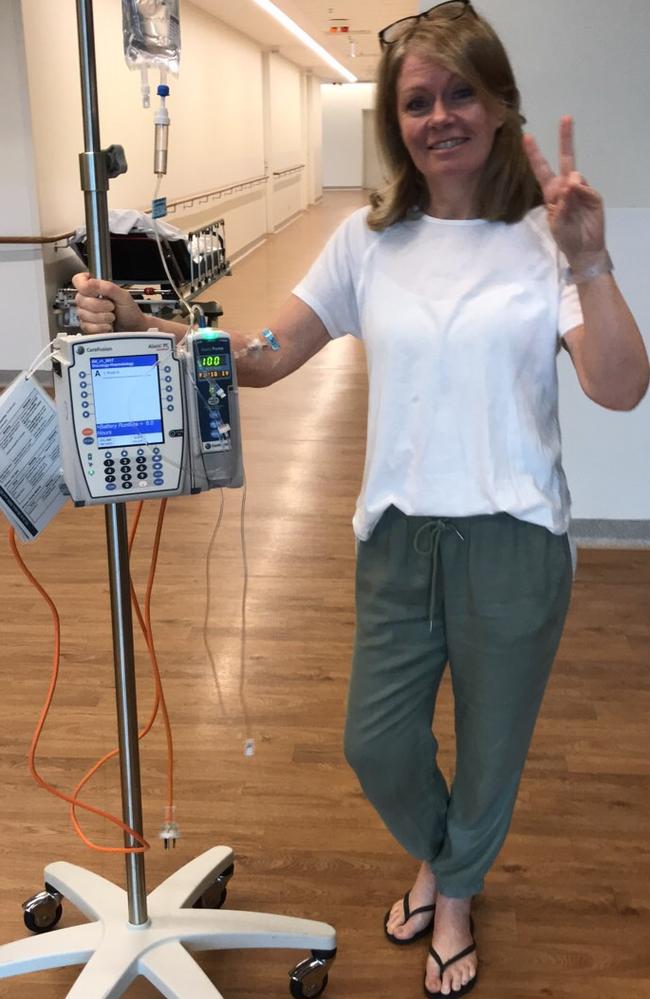
Following her surgery, Ms Raines urged her brother to have a skin check and shockingly, a primary melanoma was found in the same spot as both herself and her mother, on his left shin, which had to be surgically removed.
“The doctor told my brother — ‘you’d better buy your sister a good Christmas present, she’s just saved your life’. He was off the hook as it was detected early,” Ms Raines said.
Her doctors got her on immunotherapy treatment to give her a fighting chance against the melanoma.
Amazingly, by November of 2017, she had a complete metabolic response to the
treatment and showed no evidence of the disease.
“I had three months of double drug immunotherapy treatment. A couple of years prior to that when mum past, she was offered one of the drugs, but her cancer kept spreading and I was concerned it wasn’t going to work for me, but in that time, through research, they discovered another drug which was added to the treatment.”
Ms Raines, now 55, continues to undergo fortnightly immunotherapy infusions to prevent the
recurrence of melanoma, and she is sharing her story in the hope to encourage others to get regular check-ups and understand the importance of research.
“So many people don’t understand the seriousness of melanoma, it’s not a disease that
discriminates,” Ms Raine said.
“Having young adult children it really makes me realise how important it is for the next
generation to be aware of melanoma and sun safety in the hope that they don’t have to go
through what I went through.
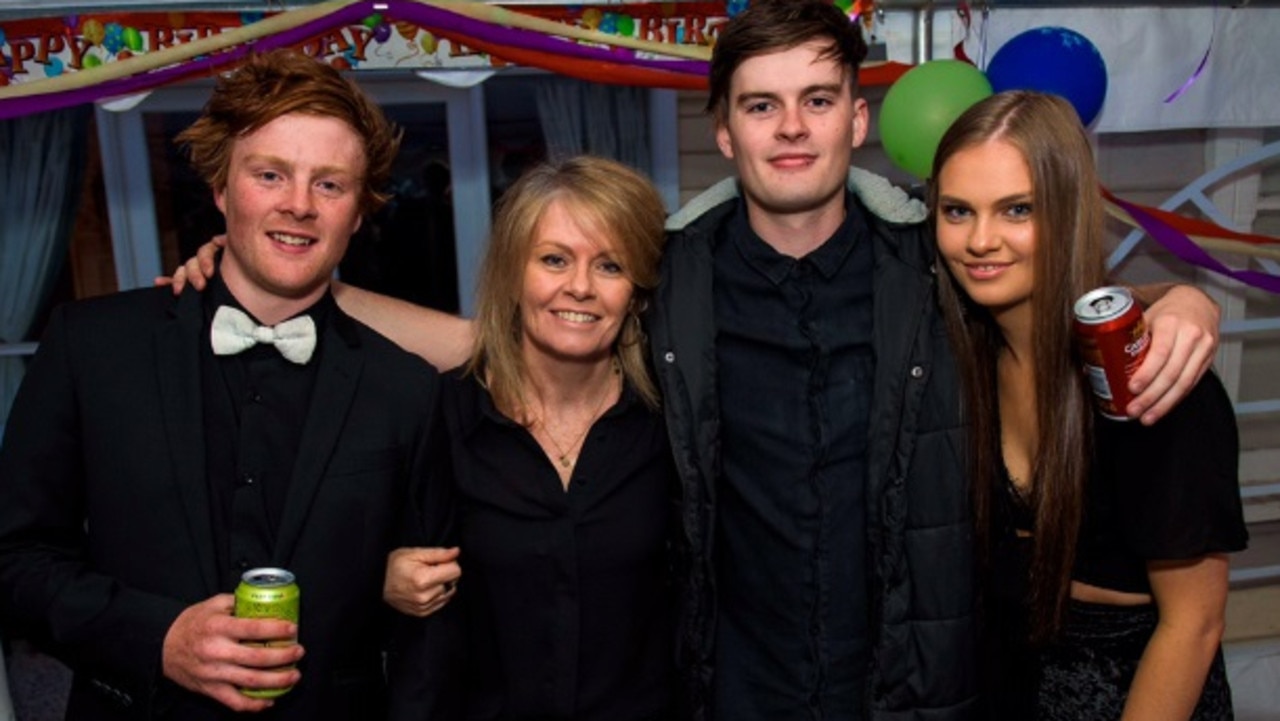
“Check your dots and spots … don’t think it can’t happen to you. We should be getting our skin checked like we get mammograms and prostate checks.”
For the first time, Ms Raine, her husband Ronnie and three children, Jess, Billy and Allie, will be participating in the Melanoma March, a major annual awareness and fundraising campaign, paving the way for new and potentially lifesaving melanoma treatments.
Melanoma Institute Australia CEO, Matthew Browne said until recent years, there were no effective treatments available to advanced melanoma patients.
“Now, thanks to world-leading Australian melanoma research, life-expectancy has tripled for advanced melanoma patients, giving them hope,” he said.
”This year, more than 14,000 Australians will be diagnosed with melanoma and sadly, around 1,800 will die from the disease.”
Every five hours an Australian will die from melanoma — one of the highest rates in the world.
Melanoma March is happening across 23 locations across the country, to register for your local Melanoma March or donate, visit melanomamarch.org.au.
Originally published as A woman whose pimple turned out to be cancer warns others to get regular check-ups


